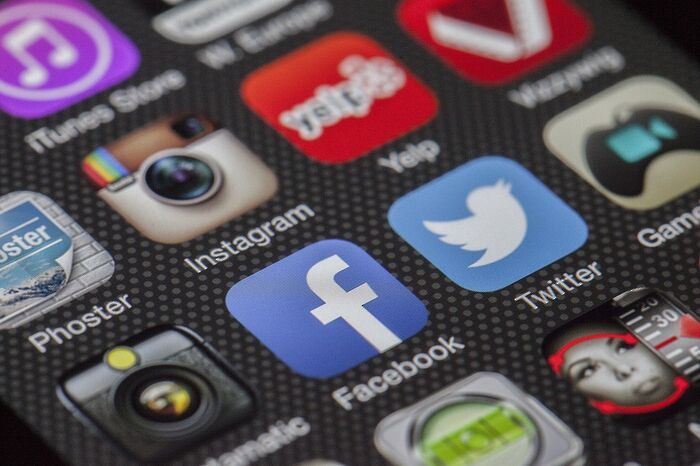Hiding in the cloud
Michael Reiners suggests that social media and the internet is is making us as execution-happy as Henry VIII when it comes to our friendships

It goes without saying that relationships have been profoundly changed by the Internet. This is largely due to the ease with which images of other people can be summoned to the computer screen and become the objects of emotional attention. At the age of 23, I have had the privilege of being raised one-foot in reality, the other in the fictional realm of social media. The monopoly on communication Facebook now holds hadn’t fully ‘set-in’ during the years that shaped my pre-adolescent self. It had, however, arrived in time for my 15-year-old self to experience an unrequited message that had been seen & read at a precise time – it arrived in time for all the angst and sycophantic lust that 15-year-olds excel in.
While it is true there is a living, breathing person at the other end of a jilted, hormonal adolescent’s Facebook message, the reaction itself is directed to an object of emotional attention on screen, not that human being. In human relations, risk-avoidance means the avoidance of accountability; social media allows for this in spades. The refusal to stand judged in another’s eyes, to come face to face with another person, is the refusal to risk rejection. We all now use messaging services to communicate with friends and lovers. This sort of communication is not fundamentally different from that of letter writing, except for its speed, but speed is by no means a trivial feature.
The rapidity of online communications does not merely accelerate the process whereby relationships are formed and severed; it inevitably changes how those relationships are conducted and understood. ‘Tag culture’ is one example of this. Facebook’s newsfeed today is no longer chronological, you may find it an effort to find content produced by another individual, one that you know. Instead, you may well maintain rapport with close friends by tagging them in humorous content that has been produced, targeted, and often monetised. The most transparent attempts at revenue-generating engagement of this kind are lists of common baby-names from the latter 1990s followed by the suggestion that “people with these names, do X thing, tag them”.
“Today, we remain fixed to our screens in times when we might otherwise be building relationships”
Of course, as consumers, we retain ultimate control over the internet: we can turn it off. Yet we don’t, and some people are frustrated, even anxious in its absence. One might say this is no different to the old cliché of ‘waiting by the telephone’. That is, the kind of telephone which requires being plugged into a wall - the phone in Blondie’s 1980 hit ‘Call Me’ was by no means a pocket-sized device designed to tether Debbie Harry to a carefully curated, online simulacra of herself that can be accessed both around the world and the clock. The careful creation of a virtual ambassador for yourself is a wholly recent invention, and even Madonna’s 2005 Hung Up predates this idea.
Today, we remain fixed to our screens in times when we might otherwise be building relationships through conversation, activities, conflicts, and projects. More care than ever is given to curating an online gallery of our endeavours and social status. And navigating these social mores of social media causes people to appear to us merely as complex devices, to be negotiated for our own advantage and without opening the possibility of mutual judgement. Online friendships do not define your moral life: they are amusements, things that have no real life of their own, but borrow their life from your interest in them - what the Marxists would call “fetishes.”
There is a strong argument to be made that the Facebook experience, which has attracted millions, is an antidote to shyness. It offers a way in which people otherwise cripplingly intimidated by venturing outwards into society can enjoy the web of affectionate relationships on which so much of our happiness depends. But there is an equally strong argument that the Facebook experience, to the extent that it is supplanting the physical realm of human relationships, intensifies shyness; it substitutes a faux form of affection for the real human interactions that shy people can only get used to through exposure.
Dating has become depersonalised too. Tinder, for one, has made romantic interactions into a ‘human-supermarket’ of choice. We become consumers, spoiled for instantly gratifying choice. Placing a screen between yourself and another human, while still retaining ultimate control over what appears on that screen, allows you to hide from real encounters - denying the other the power and the freedom to challenge you in your deeper nature and to call on you here and now to take responsibility for yourself. The infamous unsolicited image of someone’s genitals was certainly not a regular occurrence via royal mail or fax.
It could be said this is nothing new, Monarchs of old were presented with images of potential spouses, but as we become increasingly self-involved in our image, we emulate the monarchs of old. Henry VIII may well have felt a touch catfished after he effectively ‘swiped right’ on Hans Holbein the Younger’s portrait of Anne of Cleeves; yet, his more passionate relationship with Anne Boleyn ended in a hard block, of the chopping variety. This is the same mentality of human disposability that we employ online today, to the detriment of what it means to be social animals, to be human.
 Comment / Plastic pubs: the problem with Cambridge alehouses 5 January 2026
Comment / Plastic pubs: the problem with Cambridge alehouses 5 January 2026 News / Cambridge academics stand out in King’s 2026 Honours List2 January 2026
News / Cambridge academics stand out in King’s 2026 Honours List2 January 2026 News / Cambridge businesses concerned infrastructure delays will hurt growth5 January 2026
News / Cambridge businesses concerned infrastructure delays will hurt growth5 January 2026 News / AstraZeneca sues for £32 million over faulty construction at Cambridge Campus31 December 2025
News / AstraZeneca sues for £32 million over faulty construction at Cambridge Campus31 December 2025 Interviews / You don’t need to peak at Cambridge, says Robin Harding31 December 2025
Interviews / You don’t need to peak at Cambridge, says Robin Harding31 December 2025










